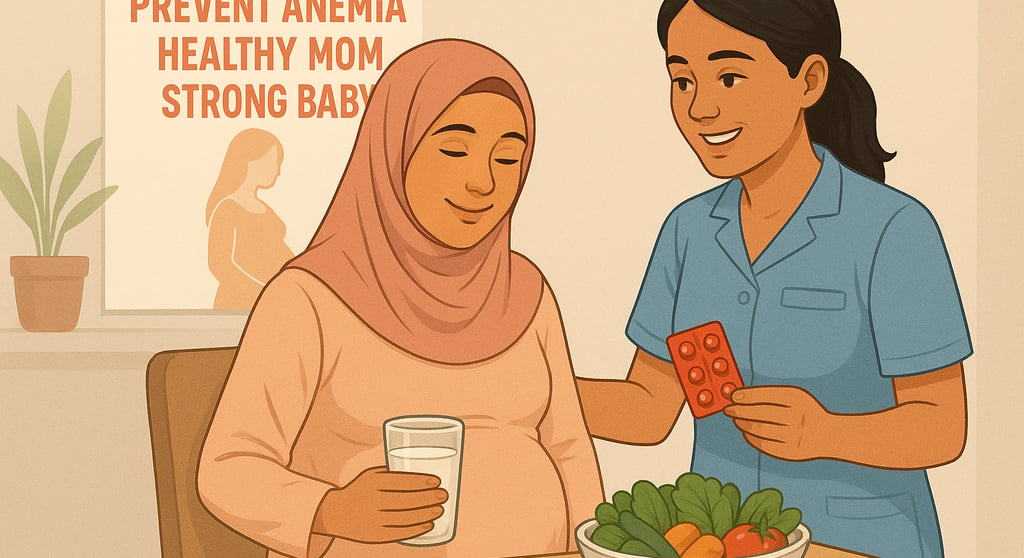Anemia During Pregnancy & Malnutrition: A Hidden Threat to Mothers and Babies
Nearly 3 out of 10 pregnant women in Indonesia still suffer from anemia. Iron deficiency and poor nutrition can harm both mother and baby—causing fatigue, complications, low birth weight, or even stunting. Prevent anemia with a healthy diet, regular supplements, and antenatal checkups. Healthy mom, strong baby! 💕👶
PREGNANCY


Introduction
Pregnancy is a time full of hope, but it can also bring serious health risks if not properly managed. One of the most common problems among pregnant women in Indonesia is anemia and malnutrition. According to the 2023 Indonesia Health Survey, around 27.7% of pregnant women experience anemia, mostly due to iron deficiency. This condition has both short- and long-term impacts, not only on the mother but also on the developing baby.
What is Anemia in Pregnancy?
Anemia occurs when the hemoglobin (Hb) level in the blood is lower than normal, reducing the body’s ability to carry oxygen to tissues. In pregnancy, anemia is often caused by deficiencies in iron, folate, or vitamin B12. Risk factors include an unbalanced diet, closely spaced pregnancies, chronic infections, and low adherence to iron–folic acid supplementation.
The Impact of Anemia & Malnutrition
Anemia during pregnancy is not just about feeling weak—it can cause serious complications, such as:
For mothers: fatigue, increased risk of infections, complications during childbirth, and postpartum hemorrhage.
For babies: low birth weight (LBW), preterm delivery, impaired brain development, and a higher risk of stunting.
Long-term effects: children may face learning difficulties and poor growth.
Prevention & Management
The good news is that anemia in pregnancy can be prevented and managed through simple but consistent steps:
Eat a balanced diet: consume more leafy greens, liver, red meat, fish, legumes, and vitamin C-rich fruits to improve iron absorption.
Take iron–folic acid supplements (IFA): at least 90 tablets throughout pregnancy as recommended by the Ministry of Health.
Attend regular antenatal care (ANC): for early detection and treatment.
Family education: the support of husbands and family members plays a vital role in ensuring healthy habits during pregnancy.
The Role of Healthcare Providers & Government
Midwives, doctors, and community health workers are key in monitoring pregnant women’s health, distributing iron supplements, and providing nutrition counseling. The government also supports anemia prevention through public health campaigns, food supplementation programs, and improved maternal health services across the country.
Conclusion
Anemia during pregnancy is a serious but preventable condition. With balanced nutrition, adherence to supplementation, and regular checkups, the risks can be minimized. Let’s work together to support maternal and child health—because a healthy mother is the foundation of a strong generation.
👉 For pregnant mothers who want to ensure a healthy pregnancy, don’t hesitate to consult Bidan Anggraeni or your nearest healthcare provider.
